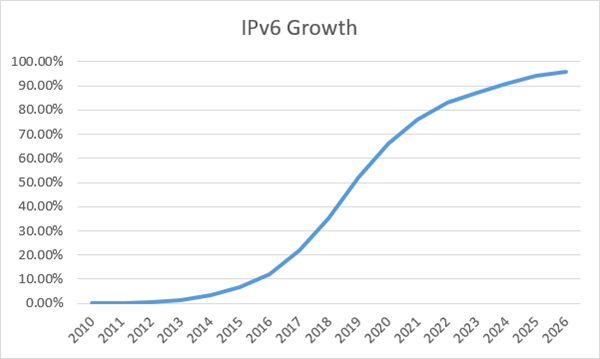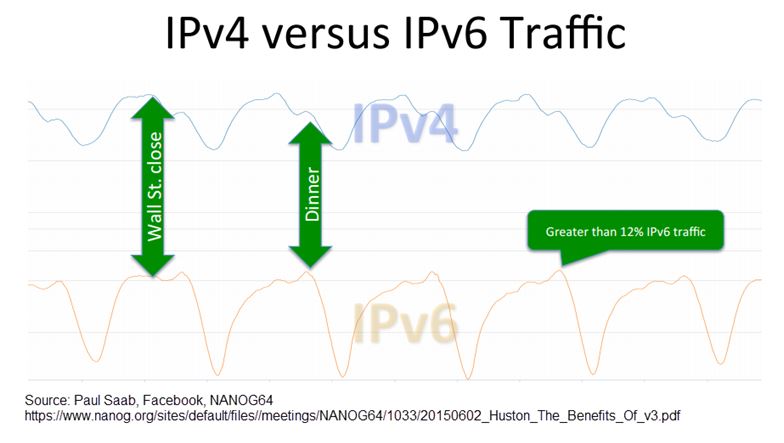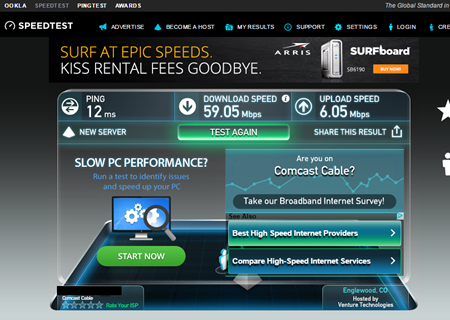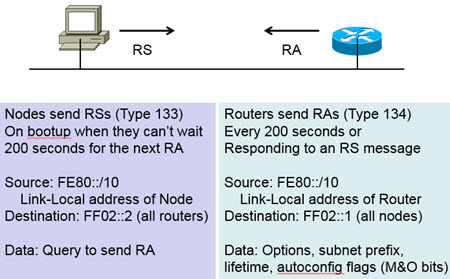Even More Methods To Provide IPv4 as a Service (IPv4aaS) — Part 3
In the first part of this blog series we covered the rationale behind why organizations may prefer to run a single-protocol IPv6-only core. However, service providers must continue to provide service to subscribers who have legacy IPv4-only devices. The second part of the blog delved into several ways ISPs can create an IPv4 as a […]
How to Provide IPv4 as a Service (IPv4aaS) — Part 2
In the first part of this 3-part blog series, we discussed how IPv4 will soon become a legacy protocol. In a few years, IPv6 Internet traffic volumes will surpass IPv4 Internet traffic volumes. We also explored the motivation for service providers to build an IPv6-only core network yet still fulfill their obligations to connect customer […]
IPv4 as a Service (IPv4aaS) — Part 1
Declaring IPv6 a Standard and Declaring IPv4 Historic
IPv6 Adoption Accelerates as IPv4 Nears its Peak

We Only Know What We Can Measure
Security Vulnerability Scanning for IPv6 Networks
There are many topics that fall under the heading of “How is the IPv6 protocol that I am less familiar with different than the IPv4 protocol that I know very well?” By now, readers of the Infoblox IPv6 Center of Excellence community blog should be familiar with several of the major differences between IPv4 and […]
How Using a Hybrid-WAN May Change Your IPv6 Addressing Plan

Internet Edge IPv6 Deployment
IPv6 in the Data Center: Manual or Automatic Configuration?

IPv6 differs from IPv4 in a few key areas, perhaps most significantly in how IPv6 behaves on an Ethernet LAN. IPv6 has far more reliance on ICMPv6 and on multicast, whereas IPv4 uses broadcasts for most administrative LAN traffic like ARP. The IPv6 Neighbor Discovery Protocol (NDP) (RFC 4861) process includes essential functions that IPv6-capable […]
Scott Hogg, GTRI CTO, Shares His IPv6 Security Expertise at Cisco Live 2016
GTRI’s Chief Technology Officer, Scott Hogg, will be a guest lecturer at a technical seminar on IPv6 at Cisco Live 2016, June 10-14 in Las Vegas. The seminar, “An Immersive Journey into IPv6,” will instruct attendees in IPv6 protocol basics, operational procedures, host operating system configurations, and more. Scott is presenting a two-hour module on […]
Network Speed: Is IPv6 Faster Than IPv4? (Part Two)

In the first part of this blog, we reviewed some recent studies on the performance of IPv6 compared with IPv4. Geoff Huston’s research concluded that IPv4 and IPv6 can be equivalent in many cases. Facebook’s Paul Saab concluded that their customers experience faster performance over native IPv6. Similar to the measurements of the amounts of […]
How Does IPv6 Change the Number of Nodes on a Local Area Network?

As people start learning about and deploying IPv6, they start considering how IPv6 changes the way they design and deploy networks and systems. Based on the IPv6 Addressing Architecture (RFC 4291), the standard IPv6 prefix length for LANs is a /64 which provides an astronomically large number of possible host Interface Identifiers (IIDs). In IPv6, […]